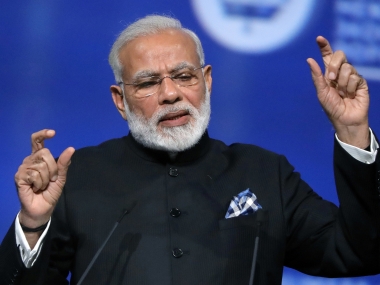The selection of
Om Birla as Lok Sabha Speaker is a clear surprise in a conventional political hierarchy. Contrary to pictures that his surname may conjure up, Birla was neither born with the silver spoon in his mouth, nor did he have political godfathers. His career progress is a reiteration of ordinary political workers rising from the ranks in the Bharatiya Janata Party (BJP) to hold high offices. Emphatically, it is no longer a conventional political hierarchy. Birla’s was not even among the names doing the rounds in Delhi for the Lok Sabha Speaker’s post. His wild card entry will not be the only one in a series of surprises that Prime Minister Narendra Modi has delivered or plans to in the future. Perhaps never before has conventional wisdom been given the short shrift as has happened during Modi’s tenure. And, mind you, such surprises will keep coming. Take, for instance, the manner in which the prime minister chose chief ministers in BJP-ruled states. It is quite evident that his adherence to conventional wisdom is fairly elastic. Remember the manner in which he surprised everyone by selecting Yogi Aditynath as chief minister of Uttar Pradesh? It defied the conventional wisdom that dictates religious figureheads and constitutional positions be kept far apart. [caption id=“attachment_6844621” align=“alignleft” width=“380”] File image of Prime Minister Narendra Modi. AP[/caption] In Adityanath’s selection, it became clear that Modi’s move was aligned to the mood of the people of the state that had voted overwhelmingly for the BJP. The mandate itself was unconventional, so reasoned Modi; so hence his choice of chief minister too would be unconventional. Political analysts were left flummoxed. Modi carried on that non-conventionalism while narrowing down on a name for the post of the country’s president. Ram Nath Kovind was as much a surprise for political veterans as members of the Sangh Parivar. By no stretch of imagination is Kovind a dyed-in-the wool Sanghi, far from it. His stint with Morarji Desai brought him closer, if anything, to a conventional Congress mould albeit with a Rightist hue. Coming from a Dalit background, he was not a radical Ambedkarite. When he joined the BJP, his political worldview was closer to the reformist variant of Hindutva. When Kovind’s name was announced, it took Bihar chief minister Nitish Kumar off guard, as Kovind was then serving as the Bihar Governor. Though Nitish was in alliance with the RJD at and a part of the Opposition, he readily agreed to extend support to Kovind when Modi asked for it. There is no doubt that Kovind’s selection did not leave much for the Congress to rally other opposition parties. For the past two decades, the Opposition seems to be singularly lacking in the ability to read the political Modi accurately. The trajectory of his political graph should make it abundantly clear that he does not believe in doing things conventionally. It might be even argued that he goes out of his way to be unconventional, just to prove a point. But his unpredictable steps are not casual, and are born out of deep thought that aim to change the course of politics. There are many stories about how the BJP sailed through in Gujarat in the late eighties and early nineties due to his out-of-the-box thinking: Modi was the party general secretary (organisation) in the state at the time. He continued with his inimitable style even during his stint as in-charge of Haryana, Himachal Pradesh and Madhya Pradesh. Old timers recall how Modi was instrumental in roping in Sudha Yadav, the widow of a Kargil martyr, BSF deputy commandant Sukhbir Singh Yadav, and persuaded her to contest the Mahendragarh (Gurgaon) Lok Sabha seat. Defying the male-dominated social structure of Haryana, Modi ensured Sudha Yadav’s victory – by a convincing margin – over Congress veteran Rao Inderjit Singh, emphatically conveying a social message of woman empowerment. Sudha’s victory paved the way for alternative politics not only for the state, but also for the BJP as a whole. Similarly, Modi’s innovative political experiments in Himachal Pradesh and Madhya Pradesh were initially frowned upon even within the Sangh Parivar. His decision to replace veteran Shanta Kumar with Prem Kumar Dhumal in Himachal raised the hackles of many top leaders. However, his persistence won him the day, as the move consolidated the BJP’s position. Realising that Madhya Pradesh is a tribal dominated state (Chattisgarh was part of the state at the time), he mobilised party workers in tribal pockets and won over the tribals. “It was a low hanging fruit which we easily plucked,” a senior office bearer of the BJP, who has worked closely with Modi, said. There is no doubt that the selection of Om Birla is only one in a series of surprises that Modi has sprung so effortlessly on his political adversaries. Those who fail to read the fine print behind these carefully calibrated moves dismiss them as politically irrelevant ‘antics’. And the Prime Minister thrives on this disdain.
Modi carried on that non-conventionalism while narrowing down on a name for the post of the country’s president. Ram Nath Kovind was as much a surprise for political veterans as members of the Sangh Parivar.
Advertisement
End of Article


)
)
)
)
)
)
)
)
)



